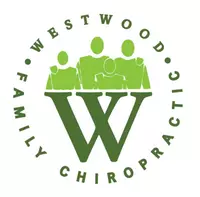
TMJ is an abbreviation for the temporomandibular joint which connects the mandibular, or your lower jaw, to the temporal bones of the skull. The TMJ is one of the more unique joints within your body as it allows you to move your jaw forward, backward, and side to side so that you can chew, talk, sing, yawn, and more. This joint can be found just in front of your ears on both sides of your head.
Any problem with the muscles, ligaments, discs, bones, or the joint itself are known as temporomandibular disorders or TMD and refers to the actual disorder, where the jaw joint is misaligned and causing problems such as pain, inflammation, and inability to move or operate the jaw. However, these problems or conditions are often incorrectly called by the joint name of TMJ instead.
What are the causes of TMD?
There can be a variety of causes for TMD and can arise from problems with the jaw, the muscles near the jaw, or the joint itself. If you notice some of these symptoms, it is important to see your doctor who may refer you to a specialist to determine the cause of the oral problem. Some common causes for TMD include:
- Injury to the joint, jaw, or muscles along your neck and face
- Whiplash
- Grinding or clenching your teeth which puts pressure on the joint
- Movement or dislocation of the soft cushion, or disc, between the joint parts
- Arthritis of the joint
- Stress, which can cause you to tighten facial or jaw muscles
- Tooth/jaw misalignment
Signs & Symptoms
Patients with TMD often experience severe pain and discomfort that can be temporary or chronic. Symptoms depend on the severity and cause of your condition and can show on one side or both. There are many signs and symptoms of TMD that can overlap with other conditions, which makes a diagnosis by your doctor all the more important.
Some of the most common symptoms of TMD include:
- Pain in the face, jaw, or ear area
- Headaches
- Earaches
- Pain or pressure around the ears, face, and behind the eyes
- A clicking or popping sound when opening or closing the mouth
- Dislocation of jaw
- Locked, stiff, or stuck jaw
- Tenderness of jaw muscles
- Limited jaw movement
- Swelling of the face
- Dental occlusion (the way the upper or lower jaw/teeth fit together)
Treatment
Chiropractic treatment is a holistic treatment option for TMD, and we are proud to offer these services at our practice. Every case is unique, and a careful diagnosis and treatment plan will help to address your needs.
If you have any questions about TMD or your temporomandibular joint, please contact our office today so that we can help.
